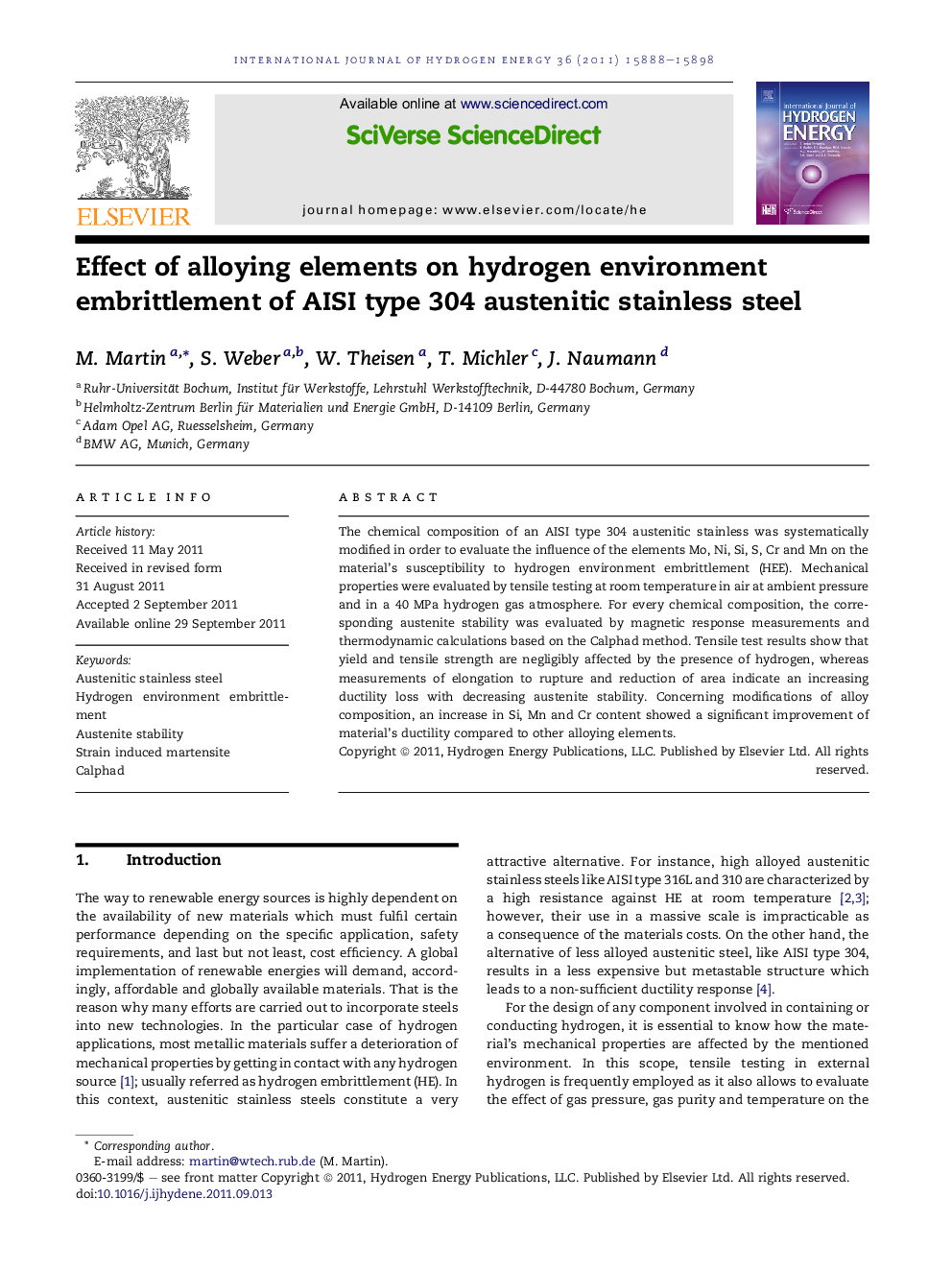| Article ID | Journal | Published Year | Pages | File Type |
|---|---|---|---|---|
| 1277386 | International Journal of Hydrogen Energy | 2011 | 11 Pages |
The chemical composition of an AISI type 304 austenitic stainless was systematically modified in order to evaluate the influence of the elements Mo, Ni, Si, S, Cr and Mn on the material’s susceptibility to hydrogen environment embrittlement (HEE). Mechanical properties were evaluated by tensile testing at room temperature in air at ambient pressure and in a 40 MPa hydrogen gas atmosphere. For every chemical composition, the corresponding austenite stability was evaluated by magnetic response measurements and thermodynamic calculations based on the Calphad method. Tensile test results show that yield and tensile strength are negligibly affected by the presence of hydrogen, whereas measurements of elongation to rupture and reduction of area indicate an increasing ductility loss with decreasing austenite stability. Concerning modifications of alloy composition, an increase in Si, Mn and Cr content showed a significant improvement of material’s ductility compared to other alloying elements.
► Effect of Mo, Ni, Si, S, Cr and Mn on AISI 304 hydrogen environment embrittlement. ► Yield and ultimate tensile strength negligibly affected by external hydrogen gas. ► Reduction of area as the most sensitive parameter to external hydrogen gas testing. ► Addition of Si, Mn and Cr improves considerably the ductility response. ► Ductility losses proportional to strain-induced martensite formation.
